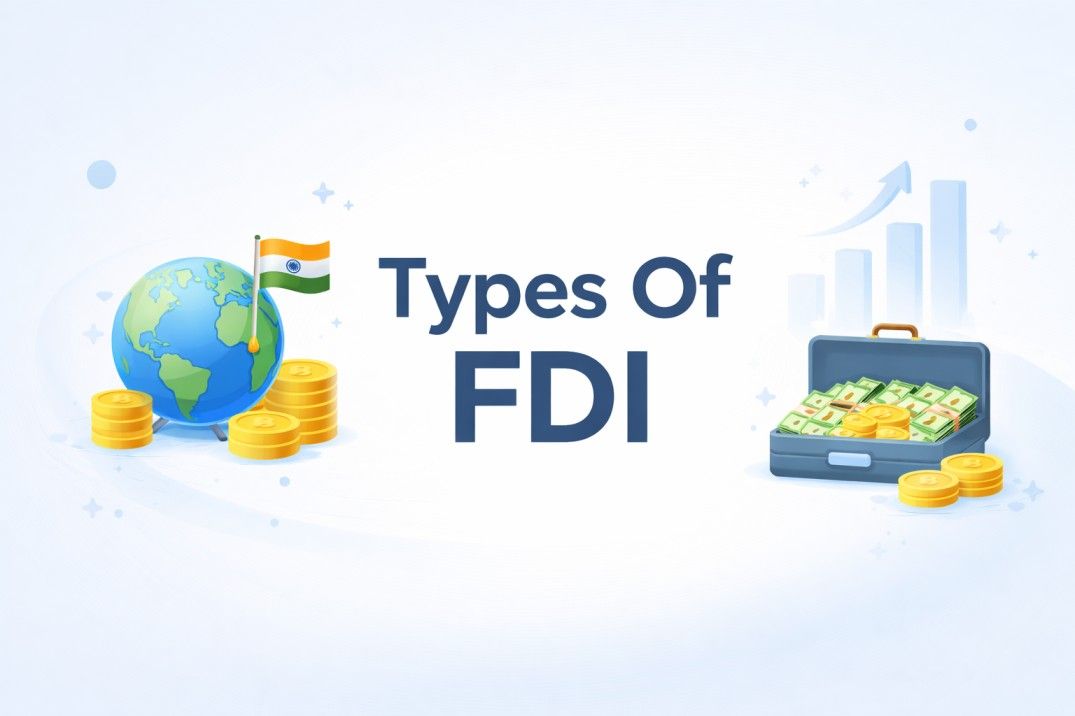- Home
- Blog
- Demat Account
- How To Open A HUF Demat Account in India: Your Complete Guide
- How To Open A HUF Demat Account in India: Your Complete Guide
How To Open A HUF Demat Account in India: Your Complete Guide

- Published Date: June 02, 2025
- Updated Date: August 06, 2025
- By Team Choice
A Demat account has become essential for investing in the Indian stock market, yet many investors are unaware that a Hindu Undivided Family (HUF) can also open one. Whether for better tax planning or managing family investments under a single entity, a HUF Demat account offers considerable advantages.
In this blog, we’ll cover everything you need to know about opening a HUF Demat account, from its eligibility and benefits to the required documents and step-by-step process.
Understanding HUF and Its Investment Scope
The Income-tax Act of 1961, specifically Section 2(31), designates a Hindu Undivided Family (HUF) as a "person," thereby making it a separate assessable entity. It can be created by families belonging to Hindu, Jain, Buddhist, or Sikh communities who share a common ancestry.
A HUF typically consists of members who are lineal descendants of a common forefather, spanning up to four generations. These individuals are linked by birth and jointly own the ancestral assets of the family.
The Karta typically heads the HUF, traditionally the eldest male, although women can now assume this role in some situations. Individuals born into the family, referred to as coparceners, have the right to claim their share in the joint family property and can also seek partition.
Originally, only sons were treated as coparceners - members of a Hindu Undivided Family (HUF) who have a birthright to inherit ancestral property, but the Hindu Succession (Amendment) Act, 2005 extended equal rights to daughters, making them coparceners by birth with the same legal rights and responsibilities as their male counterparts.
Documents List For Opening A HUF Demat Account
To successfully initiate online HUF demat account opening, the documentation varies slightly depending on the KYC status of the HUF and the residential status of the Karta.
Below is a comprehensive breakdown:
For HUFs Not Yet KYC Registered -
In case the HUF is not KYC-verified, these documents are required to initiate the demat account process:
- A formal HUF Declaration that includes annexures listing all coparceners and designates the Karta for account operations
- Self-attested copies of PAN cards belonging to the HUF entity, the Karta, and each family member involved as a coparcener
- Address verification for both the HUF and the Karta through documents like Aadhaar, a valid passport, or a recent utility bill
- Evidence of the HUF's bank account, which could include a cancelled cheque or a recent statement
- Income proof, which can include any of the following:
- Last six months' bank statement or passbook
- Latest Income Tax Return (ITR) acknowledgement
- Most recent audited profit and loss statement
- A copy of the current demat holdings statement issued in the name of the HUF
- Net worth certificate issued by a Chartered Accountant, with a valid UDIN
- A signed self-declaration and NOC from all members are mandatory when the Karta is a woman
- Non-individual account declaration form
For KYC-Compliant HUFs -
If the HUF has already completed KYC, the documentation is simplified:
- HUF Declaration and supporting annexures
- Each coparcener must submit a PAN card copy, duly signed and self-attested
- To validate the HUF's bank account, please submit either a cancelled cheque or a recent account statement.
- Provide valid income-related documents such as ITR, bank statements, or net worth certificates as specified
- When a female holds the position of Karta, all members must sign and submit a declaration along with an NOC
- Non-individual account declaration form
Additional Requirements if the Karta is an NRI -
When the Karta is a Non-Resident Indian (NRI), additional documentation is required for compliance:
- Submit both self-attested and notarised copies of their PAN card
- Address proof – Indian address (if available) must be both notarised and self-attested
- Notarised and self-attested copies of:
- A copy of a valid passport and visa is required, with India clearly mentioned as the place of birth
- NRIs with foreign nationality must also submit a valid foreign passport along with either an OCI, PIO, or residency card
- A completed FATCA declaration form may be necessary to meet U.S. tax reporting regulations
- Submission of a FEMA compliance declaration is essential for ensuring adherence to foreign exchange laws
How To Open Demat Account for a HUF: A Detailed Process
Opening a Demat account for your HUF can be done by following these simple steps:
Step 1: Create the HUF Entity:
If not already done, form a HUF by drafting a HUF declaration deed. Include the name of the HUF, names of coparceners, and appoint the Karta.
Step 2: Obtain a PAN Card for the HUF:
Fill out Form 49A and apply for a dedicated PAN in the name of the HUF through the NSDL or UTIITSL portals.
Step 3: Set up a dedicated bank account in the name of the HUF:
You can open a HUF bank account online or by visiting a bank branch. Submit the HUF bank account opening documents, including the PAN, declaration deed, and KYC documents.
Step 4: Choose a Depository Participant (DP):
Select a broker that supports HUF account opening online or offline.
Step 5: Fill in the Demat Account Application:
Complete the HUF Demat account application form. Submit all HUF account opening documents that are listed above for your reference.
Step 6: Verification & Activation:
The broker or DP may conduct an in-person verification (IPV) or allow video KYC. After successful verification, the Demat account registered under the HUF’s name will be officially activated.
Eligibility Criteria for HUF Demat Account
The following are the eligibility requirements to open a HUF Demat account:
- The entity needs to be legally recognised as a Hindu Undivided Family.
- A Karta must be appointed to manage the account.
- A valid HUF PAN card is mandatory.
- The HUF must have an operational bank account.
- All members (coparceners) must agree and declare the Karta's authority.
Under Indian law, a Hindu Undivided Family (HUF) can be formed by families belonging to the Hindu, Jain, Sikh, or Buddhist faiths.
Final Thoughts
Opening a HUF Demat account allows families to pool resources, invest jointly, and manage wealth with tax efficiency. With proper documentation and planning, it offers legal, tax, and operational benefits that individual accounts can’t match. As financial awareness grows, more families are turning to HUF account opening as a smart wealth-building strategy.
Frequently Asked Questions (FAQs)
Can a Hindu Undivided Family (HUF) hold both a demat account and a trading account?
Yes, a HUF can open both demat and trading accounts, which enables the family to hold and transact in financial instruments as a single entity.
Is online HUF account opening possible?
Yes, many platforms now support HUF account opening online, but some brokers still require offline documentation due to verification needs.
What responsibilities does the Karta have in managing a HUF Demat account?
As the HUF's financial head, the Karta is tasked with carrying out transactions, deciding on investments, and managing the account operations.
Is it possible to convert a HUF account into an individual account?
No, HUF accounts are legally distinct from individual accounts. They cannot be converted. If the HUF dissolves, individual members must open separate accounts in their own names.
Are there any extra fees associated with a Hindu Undivided Family (HUF) Demat account?
The charges are usually similar to individual accounts. However, some brokers may have additional compliance or processing fees due to the nature of the HUF entity.
Recommended for you

FII DII Data - Live Data

Copper Price Forecast for Next Week

Types Of Foreign Direct Investment (FDI): Benefits, and Key Factors
